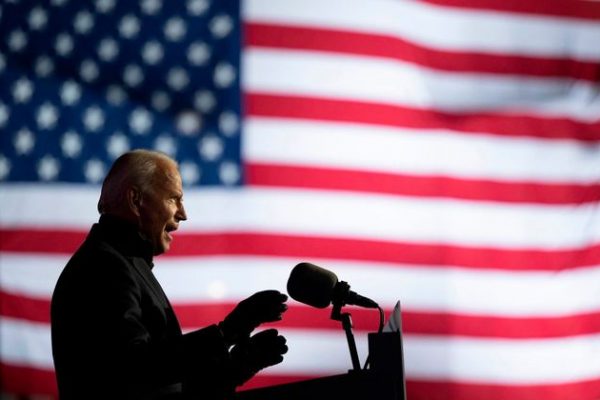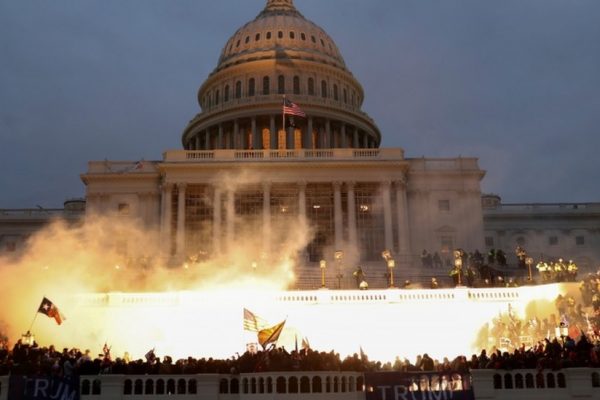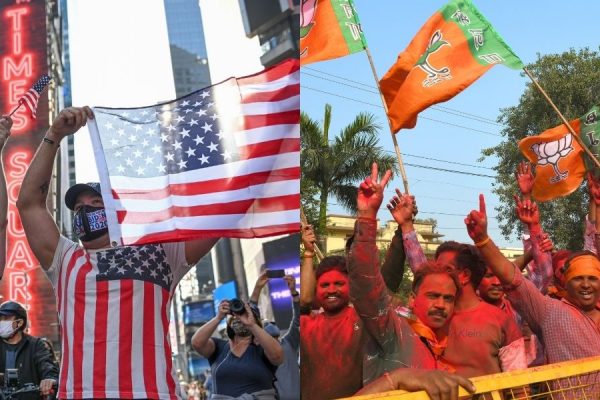Trump, Brexit, as well as the surge of populism and nationalism have proved that liberal democracy is not the cul-de-sac of history.
Trump, Brexit, as well as the surge of populism and nationalism have proved that liberal democracy is not the cul-de-sac of history.
Trump, Brexit, as well as the surge of populism and nationalism have proved that liberal democracy is not the cul-de-sac of history. Instead of waxing nostalgic about the good old days, liberal thinkers had better indulge in a retrospection to understand what went wrong.
Some of the developments in global politics during the last couple of years, such as the election of Donald Trump as US president and his brazen embrace of protectionism, the meteoric rise of an authoritarian China, UK’s withdrawal from the European Union and the surge in nationalist and anti-immigrant sentiments in some of the Eurozone countries, have been interpreted as portents of the Liberalism’s retreat as the predominant political ideology of our time.
Liberal commentators and political scientists who once believed in the invincibility of capitalism and liberal democracy set the alarm ringing about the imminent doom when liberalism takes a back seat with disastrous consequences for democracies the world over and for the laissez-fair system which, they claim, have been instrumental in securing and stabilising the world for over the last seven decades. These prophets of doom occupy a moral high ground reiterating the urgent need to defend the western liberal order which the US and its allies helped defend, deepen, and extend to every nook and cranny of the world. Trump and his ilk are getting vilified as the harbingers of this disaster. “I am not worried by the rise of China. I am more worried by the rise of Trump,” is how Joseph Nye, a political scientist of liberalist leaning, summed up his prognosis.
There are some elements of truth in these laments. The rise with a vengeance of nationalism and protectionism in the US and the popularity of autocratic regimes elsewhere belie the optimism shared by liberal thinkers over the last two decades that the world is going to embrace free-market economics to make their citizens rich and democratic governments to make them free. However, attributing the much-vaunted global peace and economic stability in the post-world war era to liberalism is absolutely preposterous. Liberalism has never been the sacred cow as the mourners lamenting its fate claim today.
Although there have been no wars of the scale and magnitude of the two World Wars since 1945, the four and half decades of the Cold War and the subsequent two and half decades of US dominance were replete with dangerous balance of power between two polar opposites and several wars of invasion and attrition waged in different parts of the world, all under the pretext of securing and sustaining the liberal world. Majority of the unilateral military interventions in the 21st century, including the invasion of two countries, several airstrikes, and Special Forces raids were initiated without any international legal authority.
Instead of strengthening the democracies, the self-proclaimed leader of the liberal world played a decisive role in shoring up autocracies and aiding and abetting military coups against democracies. In addition, the long ‘years of peace’ have witnessed the massive explosion of global weapon industry, much to the benefit of liberal economies, and an unprecedented growth in the government investment on warfare and military technology. However, liberals would love to interpret all these atrocities as an attempt of the US to mold the world in its image. They justify the spread of capitalism and liberal democracy through the barrel of a gun.
Although the cold war strategies helped in holding ‘hot wars’ in control to an extent, mutual hatred and suspicion and the threat of an impending war made the countries across the polar opposites invest massively on weaponry and military infrastructure. Most of the liberal institutions and strategic initiatives that came into being during the cold war, whether it be Marshall Plan, World Bank or NATO, were designed first and foremost as a deterrent to the Soviet block.
Commitment to democracy
The record of Liberalism’s commitment to democracy and free trade has always been dubious and is filled with lots of ambiguities and anomalies. The proponents of liberal order resorted to military intervention or unilateral economic sanction whenever it suited their interests. The US block tried to destabilise democracies which either refused to side with it or were believed to have posed a significant threat to it. On the other hand, it never refrained from using military force or violating international rules to protect its interest.
When they invaded countries or imposed unilateral economic sanctions even against countries ruled by an elected government, they were hand in glove with some of the brutal despots of the 20th century or they looked elsewhere when its blue-eyed, high-handed ally blatantly violated all international laws, committed human rights crimes, and ignored all UN charters by appropriating lands and building illegal settlements as and when it wanted. Trade deals were signed with autocracies, advanced weapons were sold to them, hands were shaken with their heads of states and as recently as in 2017 a despot who heads the most protectionist, mercantilist, and predatory economy in the world was crowned as the leader of liberal economic order in World Economic Forum.
The current wave of nationalist and protectionist ideologies and xenophobia which the Trump-type leaders have ridden the crest of was born out of the signal failures and defects of the liberalist ideology, just like it was out of the wasteland of high-modernity that TS Eliot referred to in his eponymous poem that the scourges of Fascism and Nazism emerged in the 1930s.
The neoliberal heaven — the McDonald’s country visualised by Thomas Friedman — where countries don’t like to fight wars but wait in queue for burgers, has not yet materialised, or it has come and gone so fast. Today the liberal empire that America sought to build lies in tatters. Now, as we have a US president who loves to hang around with (and even play second fiddle to) a Vladimir Putin, a Kim Jong-un, or a Mohammed bin Salman and give a green signal to the illegal Israeli settlements in the Palestinian lands, we realise that American efforts to spread democracy and tolerance and freedom throughout the world have hit the ideological quicksands.
So let us bury the outlandish theory of Fukuyama, which he no longer holds, that liberal order is the end point of mankind’s ideological evolution and the universalization of Western liberal democracy as the final form of human government. Let the clash of ideologies continue and we can brace ourselves for the turn of the history but can expect the best to come out of this.





